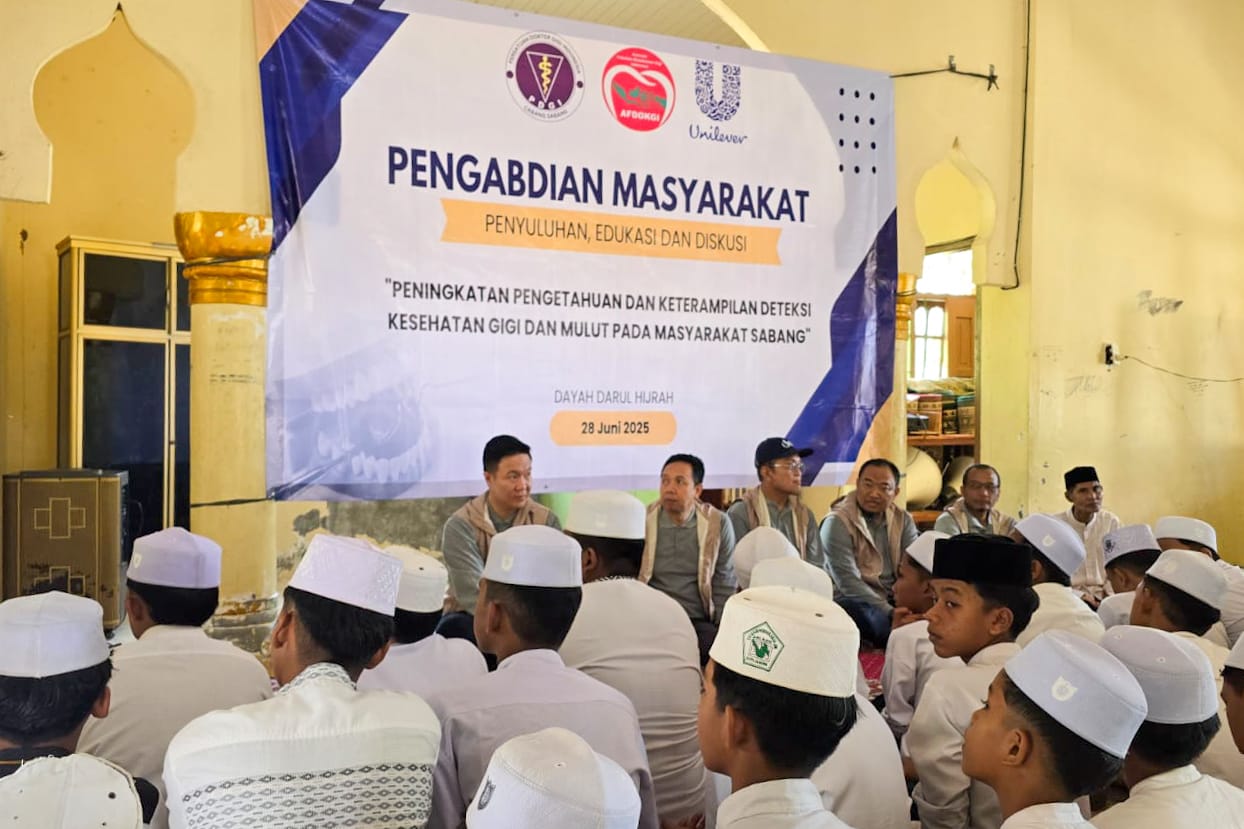In an effort to raise public awareness on the importance of dental and oral health, the Association of Indonesian Faculties of Dentistry (AFDOKGI) organized a community education program in frontier, outermost, and disadvantaged (3T) regions on 28 June 2025. The program, held in several schools in Sabang, focused on improving early detection skills for dental and oral health problems, especially in areas with limited access to healthcare services.
Dean of the UGM Faculty of Dentistry and Chair of AFDOKGI, Prof. drg. Suryono, S.H., M.M., Ph.D., explained that the initiative aims to strengthen community capacity in recognizing dental and oral problems at an early stage, particularly in regions with restricted healthcare access. According to him, this topic was chosen because dental and oral complaints are often considered minor and only receive attention once the condition worsens. In fact, prevention through simple education can be carried out if the community is equipped with early detection skills.
“The theme of this community service is to improve knowledge and early detection skills for dental and oral health among the people of Sabang,” said Prof. Suryono.
He emphasized that early education and intervention are crucial in preventing dental and oral diseases, which are often overlooked. Many cases are left untreated until they lead to complications, whereas most can be prevented through routine check-ups, proper tooth-brushing habits, and basic knowledge about oral health. According to him, improving health literacy serves as a foundation to reduce disease rates while also enhancing the overall quality of life.
“Our hope is that people can stay healthy and maintain productivity without being disrupted by dental and oral health issues,” he added.
In terms of sustainability in the healthcare workforce, Prof. Suryono also shared a special message for young dentists. He encouraged them to view community service not only as a professional obligation but also as an opportunity to build character, competence, and social sensitivity. He noted that serving in 3T regions will enrich perspectives and build confidence among young healthcare providers in facing the complexity of healthcare services.
“Seek experience while serving your profession. Choose 3T areas—it will make you more confident and more accomplished,” he advised, encouraging more dentists to directly reach communities with limited access to dental care.
Author: Fajar Budi Harsakti

